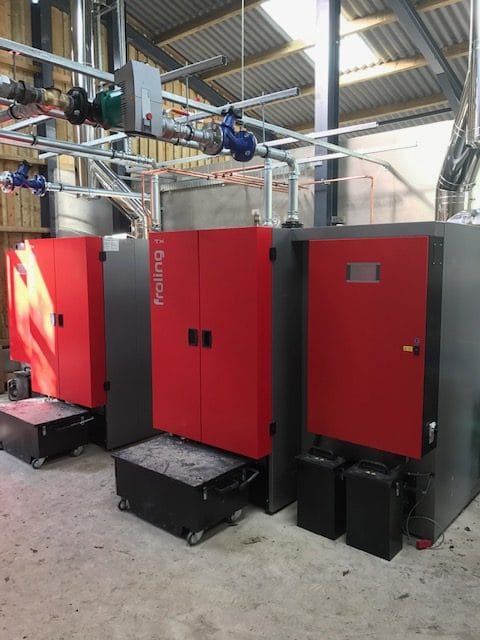Biomass Boiler Installation and Maintenance
Biomass boilers are heating systems that use the combustion of organic matter to provide heating and hot water. Biomass heating systems can be said to be carbon neutral because the carbon dioxide emitted when wood is burned is the same amount that was absorbed over the months and years that the plant was growing. Providing that new plants are grown in place of those cultivated for fuel the process is sustainable. There are some carbon emissions caused by the cultivation, manufacture and transportation of the fuel, but as long as the fuel is sourced locally, these are much lower than the emissions from fossil fuels.
Biomass boilers can be anything from simple log burning stoves, wood chip boilers, and straw burners, to fully automated wood chip or processed wood pellet burners.
There are almost as many alternative burning systems as there are ways that they can be used. However, in general a biomass boiler system that best suits the environment in which it is being installed should be selected. Factors to consider include type of fuel, fuel source and space available for the equipment and storage of the fuel. If you have existing woods on your land these could be utilised to provide the fuel, if not there is a growing network of suppliers throughout the UK who can supply wood chip or wood pellets directly to your door.
As well as individual houses and commercial premises, biomass systems lend themselves very well to social housing schemes in both new and existing properties, providing heat and hot water to a number of properties.

A major benefit of biomass boilers over heat pumps for some sites is that they are capable of generating higher temperatures, the same as existing fossil fuel boilers. Existing hot water cylinders can be retained in this case and there is no requirement to “oversize” radiators as there can sometimes be with ground source heat pumps.
For more information or to arrange a survey, please call 01772 734 966 or email: info@gosheating.co.uk






















